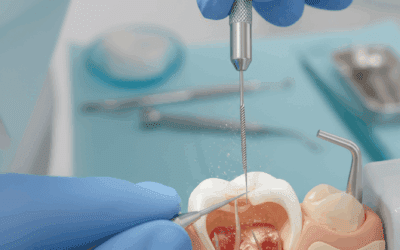When new patients visit me for the first time at my Leesburg practice, they are often focused on a specific goal: fixing a tooth, whitening their smile, or just getting a cleaning. These are all essential parts of what I do. But over my two decades in dentistry, I’ve learned that my most important job is to see the bigger picture.
Your mouth is not separate from the rest of your body. It’s a critical window into your overall health, and its condition can have a powerful impact on your general well-being. This is often called the “oral-systemic link,” and understanding it is fundamental to a truly healthy life.
Let’s explore a few of the surprising—and serious—connections between the health of your mouth and the health of your body.
The Mouth as an Early Warning System
Your mouth is teeming with bacteria, most of which are harmless. However, when oral hygiene is neglected, harmful bacteria can grow out of control, leading to infections like tooth decay and, more seriously, gum disease (periodontitis). These oral infections can be an early indicator of problems elsewhere. Regular dental exams allow us to spot warning signs like inflamed gums, dry mouth, or other oral issues that can be linked to systemic diseases.
The Link Between Gum Disease and Heart Disease
This is one of the most studied connections in medicine. While the exact cause-and-effect relationship is still being researched, the correlation is clear: patients with moderate to advanced gum disease are at a greater risk for cardiovascular disease, including heart attack and stroke.
The leading theory is that inflammation is the culprit. The chronic inflammation caused by periodontitis can contribute to inflammation throughout the body, including in the arteries. Bacteria from infected gums can also enter the bloodstream and travel to the arteries of the heart, potentially contributing to the formation of atherosclerotic plaques.
The Two-Way Street of Dental Health and Diabetes
The relationship between dental health and diabetes is a particularly challenging cycle. It’s a true two-way street:
- Diabetes makes you more susceptible to gum disease: People with diabetes are more prone to infections of all kinds. High blood sugar can weaken the body’s defenses, making it harder to fight off the bacteria that cause gum inflammation.
- Gum disease can make diabetes harder to manage: A serious infection like periodontitis can cause blood sugar levels to rise, making them more difficult to control for diabetic patients.
For my patients with diabetes, meticulous oral hygiene isn’t just about saving their teeth—it’s a crucial part of managing their overall condition.
Oral Health During Pregnancy
Expectant mothers experience hormonal changes that can make their gums more sensitive and prone to inflammation, a condition often called “pregnancy gingivitis.” Pregnant women need to maintain their oral health, as studies have suggested a link between severe gum disease and complications like premature birth and low birth weight. Taking care of your smile is an important part of a healthy pregnancy.
What This Means for Your Dental Care
Viewing your oral health as an isolated issue is a thing of the past. As your dentist, I consider myself a key member of your total healthcare team. When I look inside your mouth, I’m not just checking for cavities. I’m looking for signs of inflammation, infection, or other issues that could signal a problem elsewhere.
This is why comprehensive dental care in Leesburg is so important. A thorough examination, including regular cleanings and check-ups, is one of the best investments you can make, not just for your smile, but for your long-term health.
Your health is a complex, interconnected system. Taking care of your teeth and gums is a simple but powerful step you can take to protect them all.






